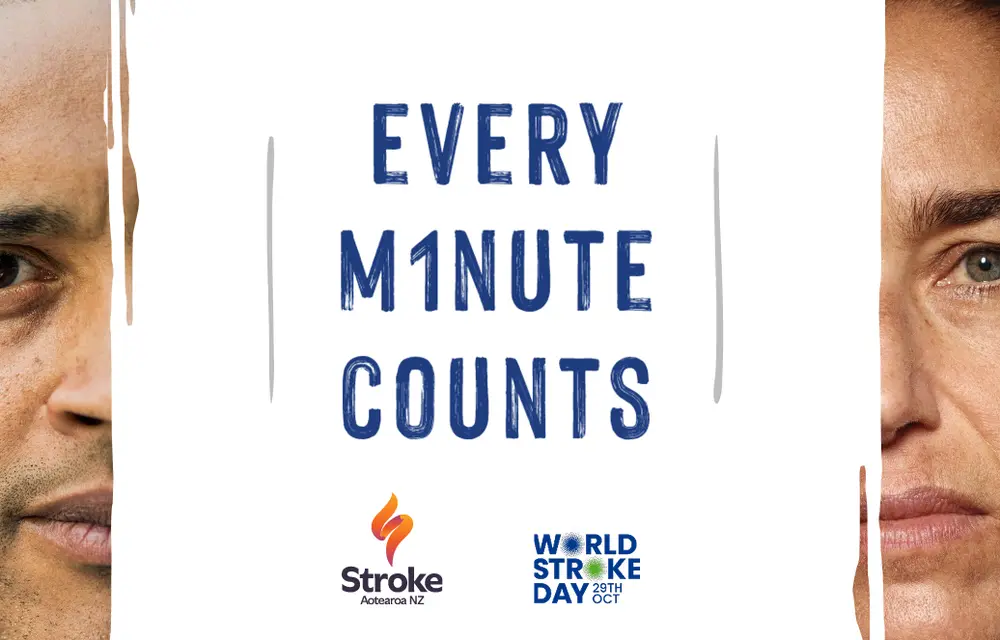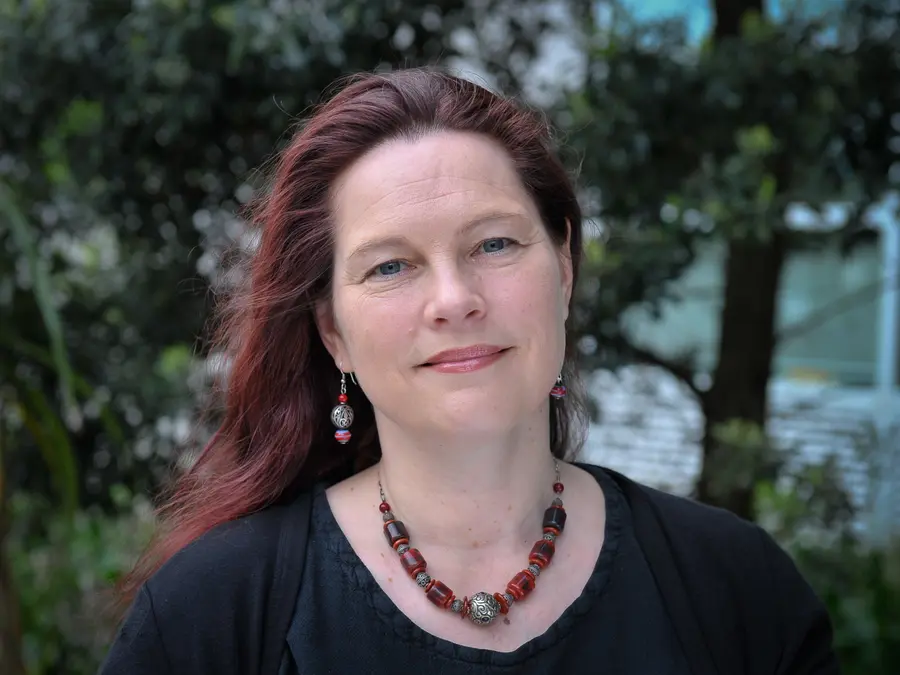Johnny's and Lizzie's story
The Kerikeri couple were living their normal, everyday lives - when out of nowhere, the unexpected happened.
Join us on October 29th to drive public awareness of stroke, recognising the signs, and acting F.A.S.T.

This year's theme, set by the World Stroke Organization (WSO), is #EveryMinuteCounts, highlighting the life-saving importance of knowing the signs of stroke and acting F.A.S.T.
F.A.S.T. encourages everyone to learn the signs of stroke and get immediate help: Face drooping, Arm weakness, Speech difficulties and Take action - call 111.
It is vital to recognise when someone is having a stroke and get medical attention (call 111) as soon as possible. A person affected by a stroke needs the help of a professional for medical intervention.
Other than performing CPR (Cardiac Pulmonary Resuscitation), if a person experiencing a stroke stops breathing, seeking immediate medical help is the best way to help a person in trouble.
The sooner medical treatment begins, the lower the risk that permanent brain damage occurs and there is a better chance of an excellent recovery. Treatments like clot-busting drugs, for example, only work in the first few hours. Every minute counts. In some cases, it means that damage can be completely reversed.
Calling 111 is the best way to get medical attention: it means that an ambulance will be sent to help, and the first responders can assess the situation and prime the hospital to prepare for the patient’s arrival. This helps ensure they are triaged appropriately and receive treatment quickly.
Stroke Aotearoa New Zealand trains communities and workplaces on how to recognise the signs of stroke using F.A.S.T. We provide free F.A.S.T. training online and an online workplace toolkit that can be used to upskill staff or inform whānau, friends and community.
Take the quiz — Educate yourself, your friends, and whānau on reducing the risk of stroke and make it known that #EveryMinuteCounts
Be into WIN — Complete all ten questions in this survey and you'll go in the draw to win some epic prizes. Get your hands on a NINJA Blast Max Blender donated by Noel Leeming Nelson and a night's luxury accommodation for two, at The Grand Millennium Hotel Auckland.

Join us on World Stroke Day for a public lecture by Professor Anna Ranta, leading stroke neurologist in New Zealand.
FREE event
Wednesday 29th October, 5:30 – 7:00pm
National Library of New Zealand, 70 Molesworth Street, Wellington
Access this year's posters, banners and logos to support the World Stroke Day campaign.
The Kerikeri couple were living their normal, everyday lives - when out of nowhere, the unexpected happened.

Fit, active construction worker Heath had his stroke at 54, leaving one side of his body paralysed. With support from his “wolf pack” and rehabilitation, Heath is adjusting to a “new normal".

Susan's* story highlights the importance of F.A.S.T. and the support for your loved ones in critical conditions.

Phoenix experienced a stroke while out on a group run. Luckily, he was with a group who thought F.A.S.T. and ensured he received help quickly.

When Raoul experienced a stroke, his mother saved his life by recognising the signs and getting help immediately.

William "Wal" Eivers has a special reason for fundraising for the Stroke Foundation in the Rotorua Half Marathon. Share your stroke story
